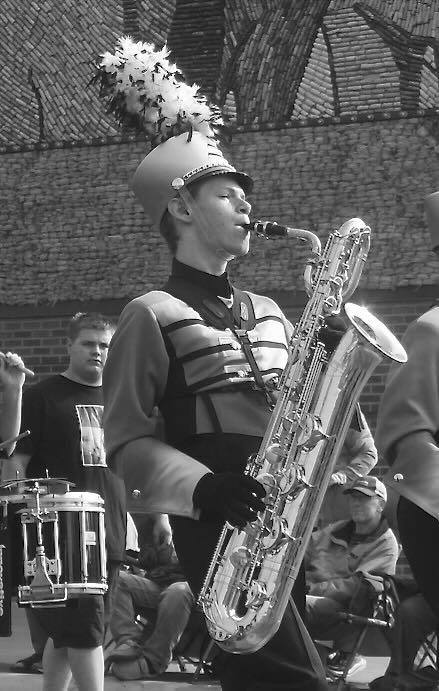Nostalgia
Should Denise and I ever get a divorce, you will know it was probably over 80s music.
I’ve mentioned before my relative disinterest in the music of that decade. It’s too broad to write off every act of that era, of course. With only a little bit of digging, you can uncover plenty of acts worth the cult following they’ve amassed (Hüsker Dü, anyone?). Even some wildly popular acts like R.E.M, INXS, and the Bangles don’t always get enough credit for the work they did.
Denise, on the other hand, loves the more eponymous acts of the 80s—Bryan Adams, Tears for Fears, Journey and the like. If we hear “Come on, Eileen” on the soundtrack in a restaurant, she will have to fight herself not to sing along.
Well, maybe not that one, since neither she nor anybody else really knows the lyrics. Bad example, but you catch my meaning.
I’ve learned to appreciate my wife’s love for the decade of our childhood, even though I don’t happen to share it. But a homecoming parade of nothing but the 80s? That’s a bit much.
Nevertheless, that’s what we got last Saturday along Main Street Mitchell, when one of the local schools held its homecoming parade. Our youngest child is a senior in the high school marching band, and so Denise—the ultimate band mom if every there was one—planned to go with or without me.
Jay marching with the Mitchell High School band in an 80s-themed parade.
The fact that I chose “without” turned out to be irrelevant. I ended up building set that morning at the community theater, which is smack dab in the middle of downtown. The staging area was a block over behind where I was working, and the route itself ran in front of the ACT building. On the positive side, I got to see Jay and the MHS marching band along with the Mitchell Middle School band—both of which are among the best in the region.
On the downside, the 80s threw up on the rest of the parade, which took that decade as its theme. Big hair, jazzercise unitards, boom boxes and parachute pants all piled onto floats designed by young people imagining what the decade of their parents’ childhood must have been like. They exaggerated some of the wilder aspects of the era and filtered out any nuance. It was the 80s in caricature, which flavored the whole event as a combination of awkward and painful and hilarious.
More ironic still was the setting of the throwback parade. Small-town homecomings are invariably an exercise in looking backward, what with their traditions and reunions and hall-of-fame inductions. Even the medium itself—a parade—seems a relic of a bygone age.
Nothing wrong with that, I suppose. As a generation ages, its members always seem to cast a wistful look back to simpler times. Music in particular gets tied to emotional memories. When I hear Tracy Chapman’s “Fast Car,” I don’t just know how that song sounds. I know how it feels. And I like that feeling.
The problem comes in when we confuse the actual world with our experience of the world. What changes over time is not the nature of the world, but our perception of it. The 80s may feel simpler, to those of us who grew up in that decade. But it was a time of conflict and chaos, of confusion and contradiction, like every other decade in history. We just didn’t have the maturity to realize it yet. After all, I remember my parents—who were not much younger then than I am now—talking about how much stranger and less certain things were in the 1980s than when they were growing up in the 1960s.
THE 1960s!!
If looking back is simply a matter of comfort, I suppose I can’t complain too much. God knows we need a little solace wherever we can get it. But there are plenty of real-world consequences for getting too caught up in past decades. I’ve spent my entire career working in institutions—higher education and a mainline Christian church—that have struggled to let go of what once was and respond to how the world has changed. Now, questions abound regarding the future of each—if they will survive, and even if they should.
I can’t knock nostalgia as such, any more than I can discredit all 80s music. But I can’t live in that neighborhood, either. There’s plenty to be gained by knowing history, but there’s literally no future in getting stuck there.

